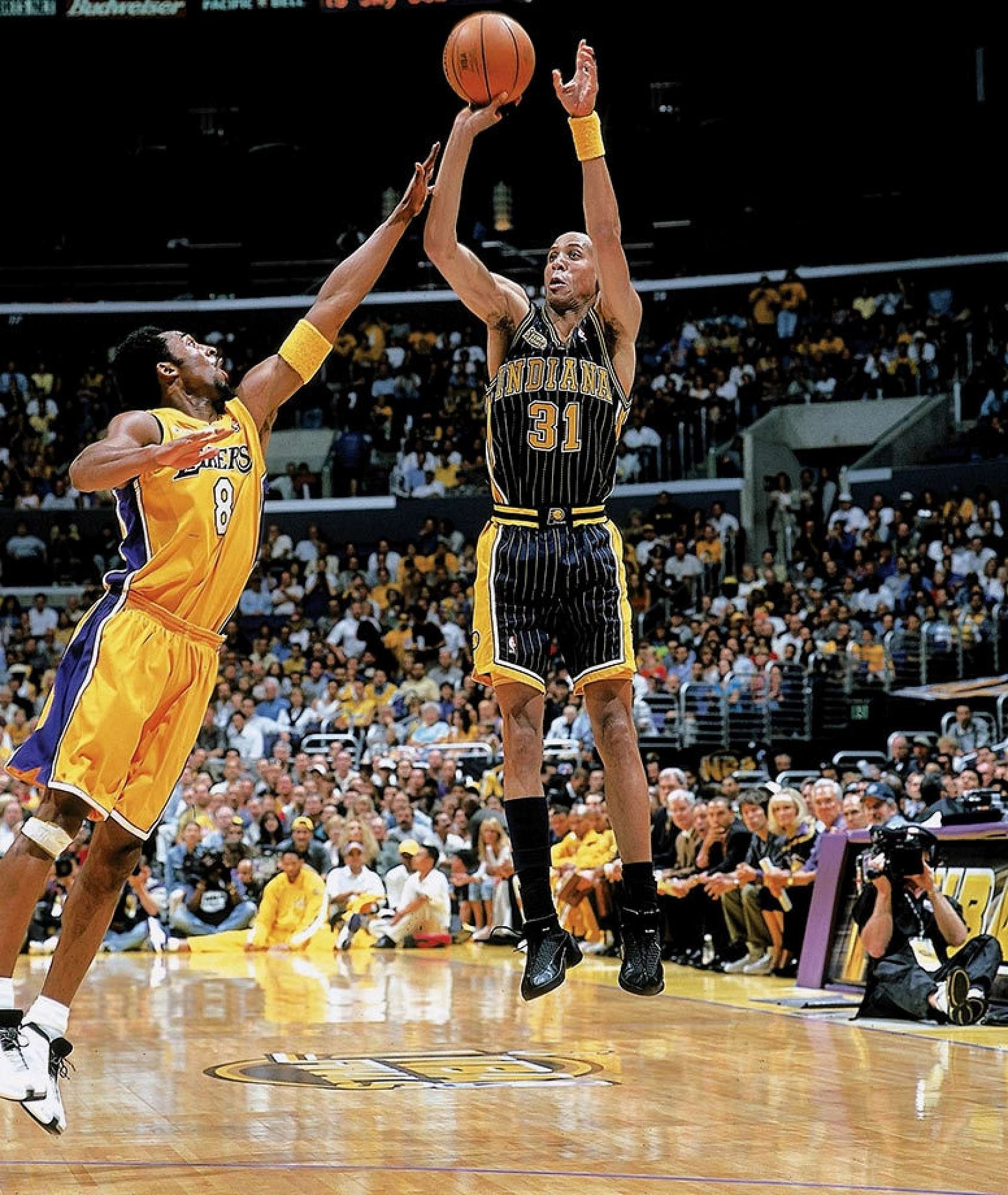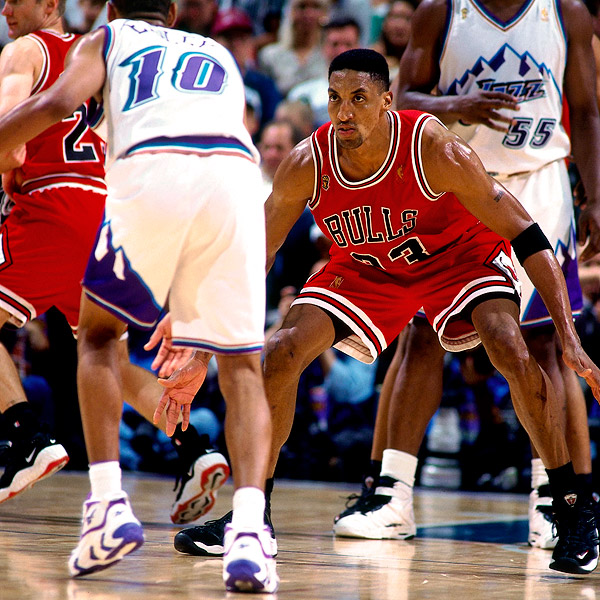AEnigma wrote:trex_8063 wrote:AEnigma wrote:Citing the Sonics also underwhelms when two of the instances were specifically cited as postseasons where Stockton was generally okay even while the offence was not.
So my arguments [in
favour of John Stockton] would be
strengthened if he'd played
worse in those series's??
I'm just not sure what to make of this particular statement.
Their playoff offense actually [usually] excelled relative to defenses faced. You suggest we must be cautious about giving Stockton much of the credit
specifically because his individual numbers fell off too much.
I counter that we should expect to see drop in individual numbers [even with excellent rORTG] when facing the veritable gauntlet of good/elite defenses that they did year after year, and perhaps particularly Stockton's in some years because one of those good/elite defenses they faced repeatedly had an elite containment man-defender at PG.
You counter that,
no, he actually played OK in those series's, so.......he
still doesn't get credit.
Or is perhaps rather that he gets no credit for elite playoff offense if his individual numbers are off, but simultaneously must absorb the blame when it's poor even if his individual numbers are fine?
It just seems like you're dead-set against giving him any sort of "a win" in this conversation.
Or you are dead set against trying to parse my argument so you can give Stockton an unearned “win”. To my eye, Malone struggling hurt the Jazz more than Stockton struggling. To my eye, Malone elevating correlates better with the Jazz’s offensive elevation than Stockton elevating. To my eye, Stockton could be successfully replaced with several all-NBA/star guards, but Malone could not be successfully replaced in turn by power forwards of that general tier. Playing series against Gary Payton has nothing in particular to do with that and reads as grasping at straws to defend a player who struggled against plenty of weaker backcourts than that.
Sadly, I don't think we're ever going to see eye-to-eye on this; too much philosophical difference in how we're approaching it.
With regards to the question I asked, for instance.....in a roundabout sort of way you seem to be [more or less] answering "yes": If he'd played worse when the Jazz offense was down==>that would result in his individual [box] performance more strongly correlating to the team==>which would strengthen your valuation of his
importance to their offense==>and seemingly thus strengthen his argument for this spot (even though he plays
worse than reality in this hypothetical).
fwiw, this appears reflected in the general sentiment around Malone, too.
In contrast to an earlier statement made [regarding his decline being less severe than Stockton], his year-to-year playoff declines in that span ('88-'97, where the Jazz playoff offense [on average] performed so well) were actually
worse than Stockton, on average: he saw an average playoff PER decline of -3.34 (vs only -2.2 for Stockton), an average OBPM decline of -1.02 (vs -0.64 for Stockton), an average WS/48 decline of -0.0813 (vs -0.0618 for Stockton), while both averaged -6 drop in individual ORtg.
Looking at things collectively during that time period, there's not a lot distinguishing one from the other on offense (and if anything perhaps favour Stockton by a tiny margin??).....
Stockton: 20.4 PER, .163 WS/48 with 9.8 OWS, +5.1 OBPM, 117 ORtg in 39.0 mpg.
Malone: 22.5 PER, .156 WS/48 with 7.9 OWS, +4.2 OBPM, 109 ORtg in 42.4 mpg.
But because Malone's peaks and valleys correlate more strongly with the team's ups and down, you deem his relevance and value is
overwhelming more important [apparently].
Which, fwiw, I'm not disputing at all that their success lives/dies on Malone's performance to a higher degree. Although......it's kinda typical that if your highest usage player [by far] is struggling, that's going to have an oversized impact on your team offense.
DISCLAIMER: Don't mistake the above as me saying Stockton was as [or more] important to their offense compared to Malone. I have not said that, nor am I now.
This is more about margins and methodology.
And I'm having difficulty gauging exactly where you stand on Stockton's importance. Because the tone and tenor of your posts have seemed to indicate that since his importance doesn't equal that of Malone, it can be hand-waved aside as sort of irrelevant and easily replaced.......which I don't believe to be the case.
There are alternate ways to view things, or additional things to consider. If, for example, one saw only the average declines, collective 10-year numbers, and the fact that their offense was generally super-resilient in the playoffs.....they might come away with the idea that Malone was being propped up to some degree by his teammates (because how could the offense possibly be so resilient in the playoffs when your star suffers such significant declines?).
Not saying they'd be right, mind you. Nor would tunnel-vision on the correlations, imo.
There could be differing views on the correlations, too, based on role.
Suppose we see a series or playoff run Malone suffers HUGE decline, while Stockton doesn't, and their playoff offense declines.
This could be viewed as Malone dropping the ball. Stockton performed, but he can't carry the team when the big guy is off.
I wonder how bad things would have looked if Stockton stunk it up, too?......the offense would no longer look as good [as resilient] through this span of years, but at least Stockton's correlation to the team outcome would look better.
Alternately, where Stockton's shooting is a bit off, scoring down (associated box metrics down), but his teammates perform well and the offense is a success.......this
could in some instances be viewed as Stockton satisfying that which is ALWAYS his mandate on the court: get my teammates going. He ALWAYS viewed his own scoring as a secondary consideration (to a fault, even). Not saying that their success is always to his credit, but it
might be to a degree true in some instances (and [it's important to note] this virtually never works in the other direction [teammates to Stockton], because of Stockton's unique role).
All I am and/or have been saying:
*On average during Stockton's prime (span of a full decade) the Jazz had VERY good [near-elite] offenses.
**Those offenses were [usually] REMARKABLY playoff-resilient. Like, seriously: I wonder how an average +2.8 boost to rORTG compares to other all-time teams over a broad span of years.
***Stockton was clear 2nd-best offensive player on these teams for all except 1-2 years [where he was the BEST offensive player].
****Stockton's individual numbers fell off less than Malone's did on average.
Speaking for myself (and again: we'll obviously not see eye-to-eye here), I think it's perfectly reasonable to believe that he probably has
something significant to do with that playoff offensive success, regardless of what the correllation to his individual box-based metrics look like.
And fwiw, within the context of where/why we're discussing him:
Would his importance to their playoff offense being less than the guy voted in at #19 really remove him from contention here at #32? Considering he too has great longevity and really solid defensive impact signals?
"The fact that a proposition is absurd has never hindered those who wish to believe it." -Edward Rutherfurd
"Those who can make you believe absurdities, can make you commit atrocities." - Voltaire

:format(jpeg)/cdn.vox-cdn.com/uploads/chorus_image/image/47148804/GettyImages-495445181.0.jpg)


:format(jpeg)/cdn.vox-cdn.com/uploads/chorus_image/image/45705238/1500516.0.jpg)





















